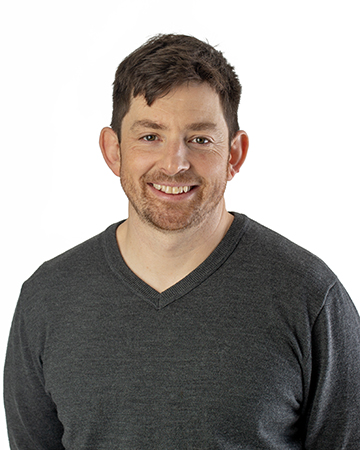Profile for Ross Vander Vorste

Contact me
Ross Vander Vorste
Pronouns: He/His/Him
Associate Professor
Biology
University of Wisconsin-La Crosse
Ross Vander Vorste Pronouns: He/His/Him
Associate Professor
Biology
Specialty area(s)
aquatic invertebrates, freshwater ecology, disturbance ecology, community ecology, conservation biology
Brief biography
My lab studies the effects of disturbances (natural and human-induced) on biological communities and freshwater ecosystems using field studies, laboratory experiments, and existing datasets. We have a strong research focus on invertebrates because they are incredibly diverse, found in many freshwater habitats, and are excellent indicators of environmental conditions.
If you are interested in joining the lab for undergraduate or graduate research, please contact me by email or phone.
Current courses at UWL
Freshwater Invertebrate Zoology (Bio 414/514) - includes lecture and lab
Ecology (Bio 307)
Organismal Biology (Bio 203)- includes lecture and lab
Capstone Seminar (Bio 491)
Education
PhD Ecology University of Claude Bernard Lyon 1, Lyon, France
M.S. Biological Sciences South Dakota State University, Brookings, S.D.
B.S. Environmental Management South Dakota State University, Brookings, S.D.
Career
Professional history
2017-2019 Postdoctoral Scientist, University of California Berkeley, Berkeley, CA
2016-2017 Postdoctoral Scientist, Virginia Tech, Blacksburg, VA
2010-2012 Environmental Specialist, North Carolina Division of Water Quality, Raleigh, NC
Research and publishing
Most Recent Papers:
Stegen, J., A.J. Burgin, M. H. Busch, J. B. Fisher, J. Ladau, J. Abrahamson, L. Kinsman-Costello, L. Li, X. Chen, T. Datry, N. McDowell, C. Tatariw, A. Braswell, J. M. Deines, J. A. Guimond, P. Regier, K. Rod, E. K.P. Bam, E. Fluet-Chouinard, I. Forbrich, K. L. Jaeger, T. O’Meara, T. Scheibe, E. Seybold, J. N. Sweetman, J. Zheng, D. C. Allen, E. Herndon, B. A. Middleton, S. Painter, K. Roche, J. Scamardo, R. Vander Vorste, K.Boye, E. Wohl, M. Zimmer, K. Hondula, M. Laan, A. Marshall, K. F. Patel. 2025. Reviews and syntheses: Variable inundation across Earth’s terrestrial ecosystems. Biogeosciences 22: 995–1034.index
Vander Vorste, R., S. Strassman, and S. Henkhaus. 2024. Viability of phytoplankton, zooplankton, and aquatic macroinvertebrates in dredged river sediments of the Upper Mississippi River. River Research and Applications. https://doi.org/10.1002/rra.4402.index
Foulquier, R., T. Datry, R. Corti, D. Von Schiller, K. Tockner, R. Stubbington,..(many co-authors)…Vander Vorste, R, …, 2024. Unravelling large-scale patterns and drivers of biodiversity in dry rivers. Nature Communications 15, 7233. https://doi.org/10.1038/s41467-024-50873-1.index
Vander Vorste, R., C. Ganong. 2024. Using Aquatic Macroinvertebrates in Stream Bioassessment. River Field Studies Network, (Version 1.1). QUBES Educational Resources. doi:10.25334/EY06-C525.
News
Kudos
presented
presented
named
interviewed
presented




